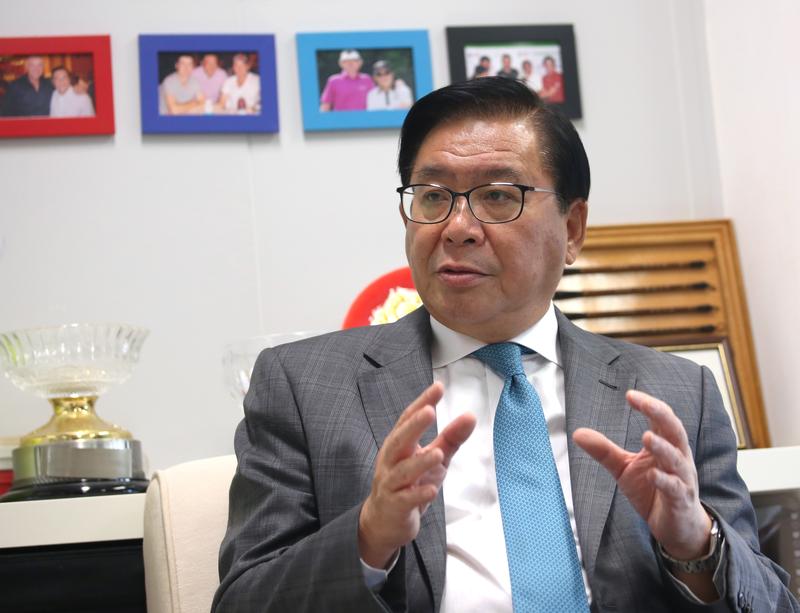 Jeffrey Lam Kin-fung, legislator for the business sector and Hong Kong executive councilor, talks with China Daily on the planned national security legislation for Hong Kong. (PARKER ZHENG / CHINA DAILY)
Jeffrey Lam Kin-fung, legislator for the business sector and Hong Kong executive councilor, talks with China Daily on the planned national security legislation for Hong Kong. (PARKER ZHENG / CHINA DAILY)
The Hong Kong national security law has the overwhelming support of the local business sector, including foreign businesspeople with a stake in the city, said Jeffrey Lam Kin-fung, legislator for the business sector.
A survey by the Hong Kong General Chamber of Commerce (HKGCC), the largest business chamber in the city, late last month showed that 61 percent of the 418 responding member companies believe that the national security legislation will have a positive impact or no impact at all on their businesses over the long term.
Safety and stability in Hong Kong are in jeopardy due to the riots, the COVID-19 pandemic, and the lack of national security legislation under Basic Law’s Article 23. The enactment of the national security law can exactly fill the void, provide confidence to the investors and brings the city a dominant force to quell separatism and secession
Jeffrey Lam Kin-fung,
legislator
“Our survey is very representative.” Lam, also a member of the chamber, told China Daily, pointing out HKGCC is the oldest of its kind in Hong Kong, and it comprises multinational, foreign- and mainland-funded enterprises, as well as small and medium enterprises.
“Wherever businessmen go, they want a stable political, economic and social environment. Hong Kong was very safe and stable until violent protests erupted in the city last June. The foreign investors feel that if the government can halt social unrest decisively, they still see Hong Kong a very ideal place of doing business.
“Safety and stability in Hong Kong are in jeopardy due to the riots, the COVID-19 pandemic, and the lack of national security legislation under Basic Law’s Article 23. The enactment of the national security law can exactly fill the void, provide confidence to the investors and brings the city a dominant force to quell separatism and secession,” he said.
“The foreign businessmen are largely positive with the national security law. The chamber and I have never heard any of them planning to curtail their investment or withdraw from Hong Kong because of the national security legislation,” he said enthusiastically.
On the likelihood of US economic sanctions upon Hong Kong, Lam believes that the value of Hong Kong exports to the US is very small — around 0.1 percent of the city’s GDP.
Meanwhile, the US has enjoyed a favorable trade balance of an average of $30 billion annually over Hong Kong over the past decade. In 2018, the trade balance was $31 billion. Last year, it still stood at $26.1 billion despite Sino-US trade tensions.
“The US will punish no one but itself if it sanctions Hong Kong,” he said, “and the 1,300-plus American enterprises and some 80,000 US nationals in Hong Kong will suffer.”
Lam also dismissed accusations by some Western politicians that the national security legislation will erode “one country, two systems”, the Sino-British Joint Declaration, human rights and civic freedoms in Hong Kong.
All countries, like the US and UK, have their own national security laws, and why can’t China have one for Hong Kong to protect against separatism and terrorism? Lam said. “Isn’t Hong Kong a free enough place, as so many people are causing trouble here every day?”


